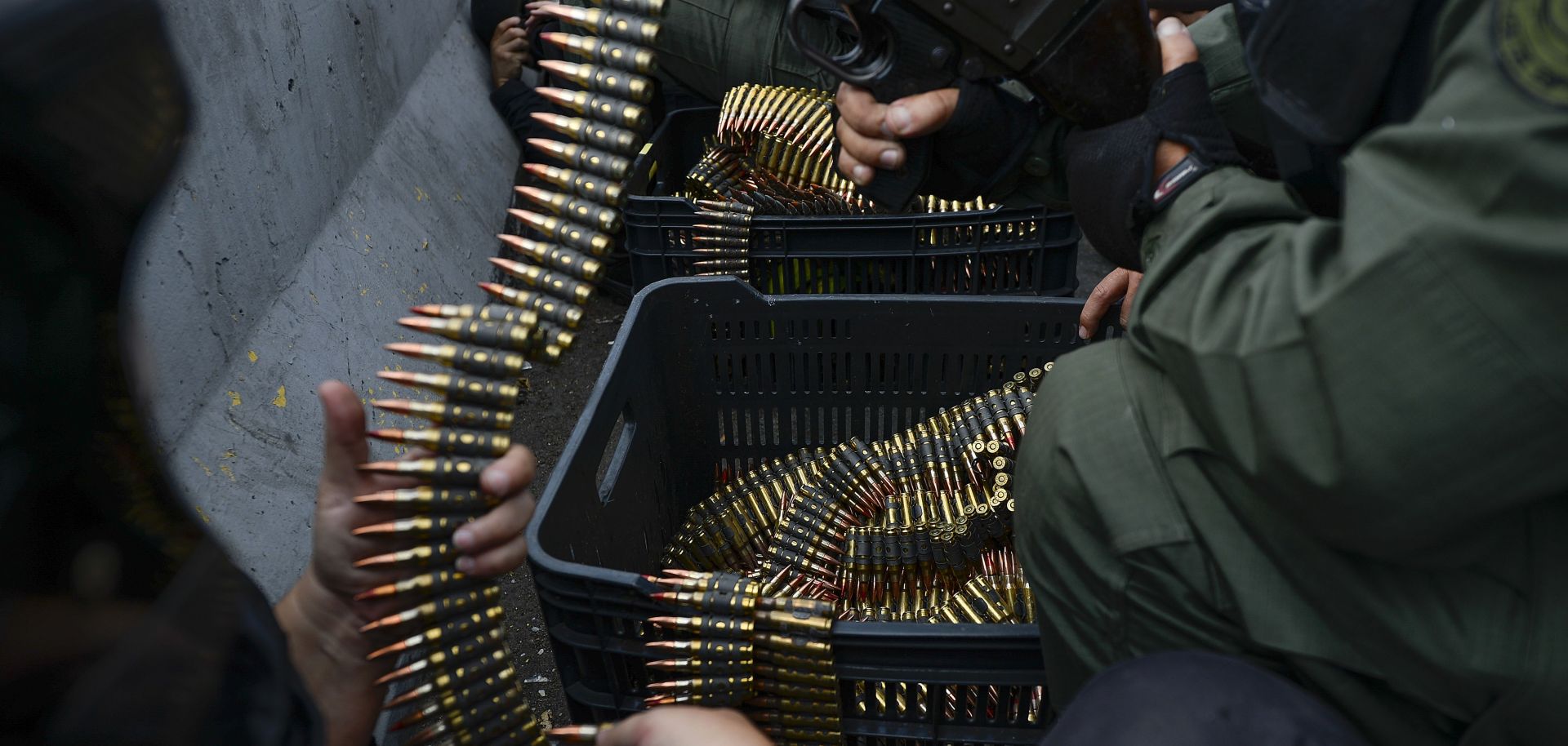COLUMNS
Why Do Coups Fail? One Simple Question Holds the Answer
May 8, 2019 | 23:09 GMT

Soldiers who joined Venezuelan opposition leader and self-proclaimed acting president Juan Guaido take position during clashes with members of the Bolivarian National guard loyal to President Nicolas Maduro, in front of La Carlota base in Caracas on April 30, 2019. - Venezuelan opposition leader and self-proclaimed acting president Juan Guaido said on Tuesday that troops had joined his campaign to oust President Nicolas Maduro as the government vowed to put down what it called an attempted coup.
(MATIAS DELACROIX/AFP/Getty Images)
Highlights
- The stumbling blocks that doomed both the 2016 coup attempt in Turkey and a recent effort in Venezuela were as different as their geopolitical situations. But both cases illustrate the challenges that coup plotters face in securing the tacit commitment of key stakeholders.
- Regardless of country-specific conditions, a major snag for those who wish to organize coups is convincing necessary parties, such as commanders in the armed forces, to put their necks on the line.
- The need for secrecy among coup conspirators to prevent their plans from either being disrupted or drawing a government response can create uncertainty among participants until the very end.
Subscribe Now
SubscribeAlready have an account?
